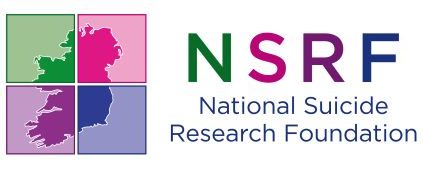The National Suicide Research Foundation is governed by a Board of Directors with a minimum number of 5 and a maximum number of 11 people. The Board meets at least five times each year. Each Director’s term of office is three years. A Chairperson is elected by the Board of Directors whose term of office is also three years. At each Annual General Meeting one third of the Directors elected from the membership retire by rotation and may be eligible for re-election. The process for nominations and voting is laid out in the Election Rules document which is posted on the website and made available to all Members.
Policies and Procedures for the Induction and Training of Board Members
All new Directors receive a Board Induction Folder on appointment. This contains the following documentation:
- Board Handbook
- Board-member Code of Conduct and Managing Conflicts of Interest Policy
- Charities Governance Code and Legal duties of Charity Trustees Infographic
- NSRF Governing Documents
- Strategic Plan
- Board Minutes from the previous 12 months
- Reports of the Chief Executive Officer from previous 12 months
- Annual Budget
- Other relevant documentation.
Board Members also get complete information on how the NSRF demonstrates its full compliance with the Governance Code. The Chief Executive Officer schedules a 2-hour Induction Meeting with each new Director in the first month following appointment, at which a sub-set of information customised for each new member is made available.
Board Subgroups
The National Suicide Research Foundation has five Standing Board Sub-committees, namely:
- Operations Sub-committee
- Research Advisory Sub-committee
- Audit, Finance and Risk Management Sub-committee
- Human Resources and Remuneration Sub-committee
- Governance, Policy & Procedures and Board Nominations Sub-committee.
Decision-making
Certain decisions are reserved for the Board and include:
- The Company’s strategic plans and annual operating Budgets
- Projects outside the scope of the strategic plan
- Business acquisitions and disposals
- Litigation
- Appointment/Removal of Subgroup Chairs and Members
- Appointment/Removal of the Chief Executive Officer, the Director of Research, Chief Scientist
- Appointment/Removal of Auditors
- Approval of Borrowing/Finance Facilities
- Approval of new staff positions
- Approval of HR Contracts exceeding €40,000 per annum
- Annual Review of Risk and Internal Control
- Approval of policies and procedures and Board nominations.
Although ultimate responsibility for the governance of the NSRF rests with the Board of Directors, certain duties and responsibilities are delegated from the Board to the Chief Executive Officer, the Director of Research and the Chief Scientist and through them to the members of the staff team. These duties include implementation of the strategic plan; leading and managing the NSRF’s staff members, programmes, projects, finances and all other administrative aspects so that the NSRF’s on-going mission, vision, and strategies are fulfilled within the context of the NSRF’s values as approved by the Board of Directors. The Chief Executive Officer is responsible for preparing materials for Board consideration and for preparing materials for any strategic planning process.
When the NSRF agrees to co-operate formally with other organisations on specific projects or in specific work areas, the agreements are determined by a Memorandum of Understanding/Service Arrangement or a form of written agreement which is approved by the Board of Directors.
Internal Controls
The National Suicide Research Foundation conducts an annual Risk Review process that is assessed in detail by the Audit, Finance and Risk Management subgroup with senior management and ultimately reviewed and signed off by the Board of Directors. This process involves identification of the major risks to which the NSRF is exposed, an assessment of their impact and likelihood of happening and risk mitigation actions for each. The quarterly report of the Operations Subcommittee to the board contains a section on risk analysis updating the board regarding the status of the most acute risks to the NSRF and this is reviewed at each meeting of the Board of Directors.
Transparency and Public Accountability
The Board believes that the National Suicide Research Foundation and all organisations with charitable status must be fully accountable to the general public, providing detailed information on where its funds come from and on what they are spent. The NSRF’s annual Financial Statements when approved by the Board of Directors are submitted to the Companies Registration Office and are available here *link*.

